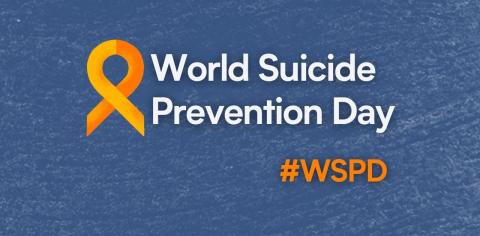How many General Practitioners are trained in Suicide Awareness and Prevention?
The Department of Health admits that it does not have this data, despite identifying GPs as critical sources of support in their Protect Life 2 Suicide Prevention Strategy (2019)
Protect Life 2 Suicide Prevention Strategy includes an action (7.2) to train 50% of frontline Health and Social Care staff (HSC) in suicide prevention.
The Strategy identifies GPs as the most frequently used source of professional support for someone in the community seeking assistance with emotional distress.
As no data has been published by the Department of Health, we used Freedom of Information Act to ask for data on the numbers of GPs trained in suicide awareness and suicide prevention.
We also asked for the number of mental health practitioners in Multi-Disciplinary Teams trained.
Finally we asked for an update on progress made towards achieving the overall target of 50% of HSC staff trained in suicide prevention by 2022.
The response received stated that Action 7.2 “has been difficult to monitor and collation of relevant data is challenging”. What this means is that the Department of Health is not collecting data on or monitoring the training of GPs in suicide prevention.
The Department indicated that the NI Medical and Dental Training Agency (NIMDTA) has responsibility for managing annual appraisals of GPs and that Continuous Professional Development falls within those appraisals.
It also confirmed that data on numbers of HSC staff undertaking suicide prevention training cannot be disaggregated by profession, because that data is not captured during training.
In a Background Note AWQ 4232/22-27, included in the FOI response, the Department stated that “caution must be exercised in making such (suicide prevention) training mandatory, as it cannot be assumed that all staff are ready at that time to deal with such a sensitive issue. Instead a process of encouraging and supporting uptake is preferred”. The reference to staff here is to all HSC staff, not only GPs, although GPs are included.
All of the above raises a number of serious questions for the Department to answer:
How are they assessing progress against delivery of the Strategy’s Action 7.2, if they aren’t collecting the data?
Has the Department requested data from NIMDTA on GP training in suicide prevention?
Short of making suicide prevention training mandatory, how will the Department ensure that critical front-line health staff, including GPs, are fully trained in suicide prevention?
If delivery of suicide prevention training to front line health staff, including GPs, is based on a process of “encouraging and supporting uptake” , how can the public be confident that their GP, or at least someone in their extended team such a Mental Health Practitioner, has the skills to recognise and intervene appropriately when someone may have thoughts of suicide or be at immediate risk of suicide?
New Script activists raised these issues with Department of Health and Public Health Agency officials at the Assembly’s All-Party Group on Suicide Prevention on Thursday 7 September.
Officials admitted that there “was a problem with how data was collected”. They suggested that there had been a “self-reporting mechanism that fell down”.
They also indicated that the training programmes were primarily aimed at the community and voluntary sector , but did include categories of Health and Social Care staff.
Unfortunately however, little clarity was provided as to how these issues will be urgently resolved.
The All-Party Group Chair has asked the officials to look into these issues and to report back to the All-Party Group.